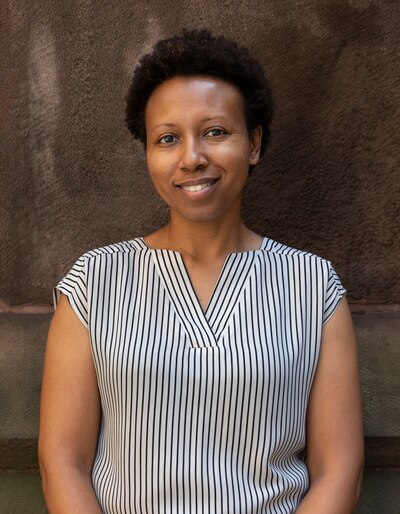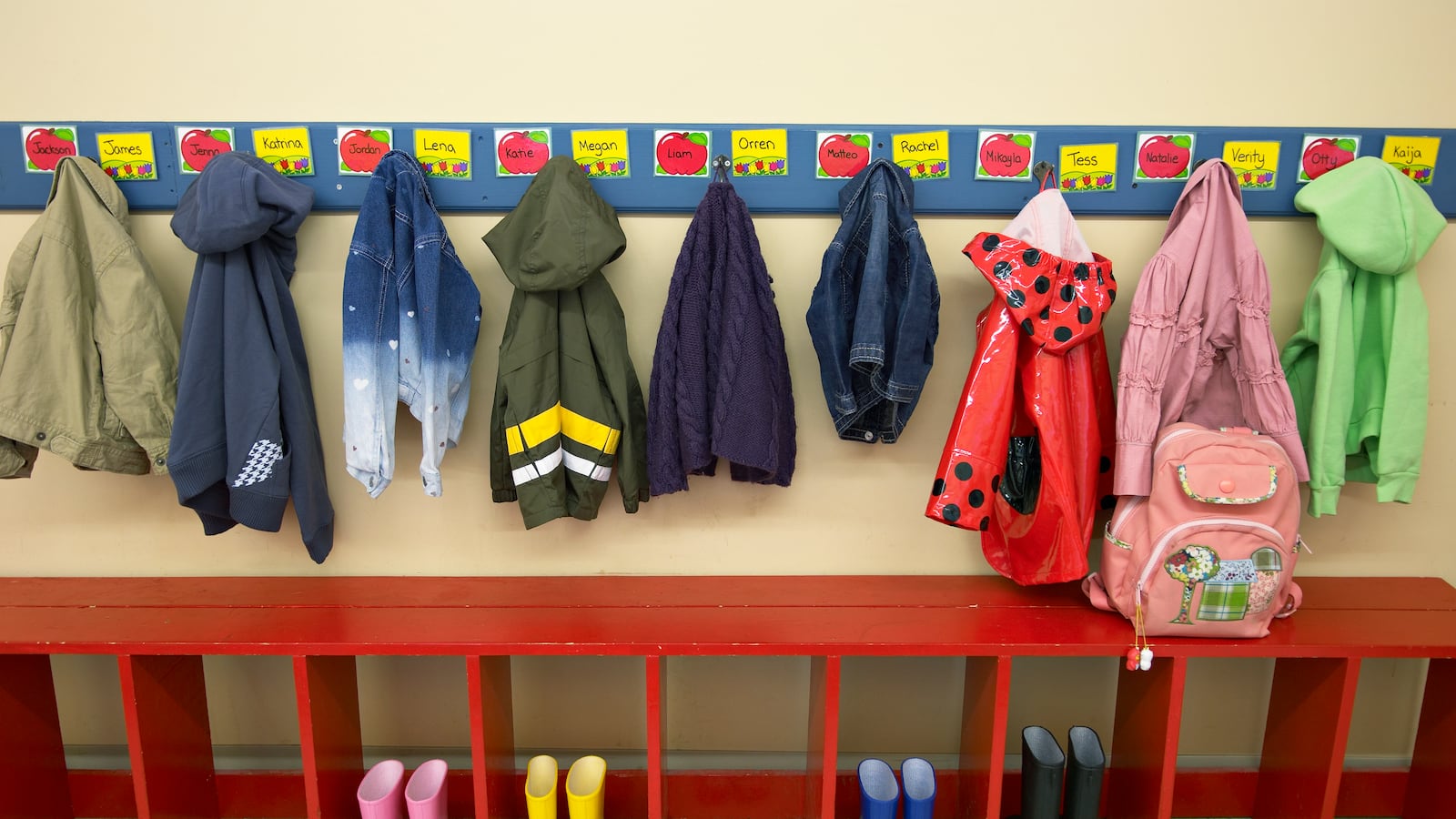I am a Black woman, a mother of two, a former preschool and special education teacher, and a doctoral student in early childhood education. Although my kids are no longer in preschool, I think back on the experience in their early childhood program with mixed emotions.
My older son was quiet and learned easily the expectations of being in school, while his younger brother did not. Our preschool often expressed how much they loved our family, but comments shared during a period when my younger son struggled revealed a different story. “He just needs more time” — that was the conclusion that my spouse and I arrived at and the message that we communicated with the directors. Unfortunately, they did not share that view.

That meant each day was filled with anxiety as I wondered what I might hear about my son from the staff during pick-up or drop-off. I feared what they might suggest or do to reduce the behavior that they found concerning.
The situation was not healthy or sustainable for our family, so we began seeking alternative programs where our son might feel more at ease and where the staff would see his child-like behavior, such as biting and crying, as precisely that, the behavior of a child not yet 3.
Around the same time, our preschool approached us to have him evaluated for special education services. I worried about our son becoming another statistic about a Black boy who “needed” special education when he really needed patience, understanding, and affirmations from the staff. Black children have long been disproportionally represented among special education students and under-referred for gifted programs. But we went ahead with the evaluation, hopeful that we might actually be able to figure out if targeted supports could help him feel more successful.
At the time, I was a graduate student in early childhood and special education, so I knew all too well how Black children and children receiving special education services can be mistreated in schools — including preschools — and how, for example, they face a disproportionate number of suspensions and expulsions, even in early childhood.
I feared what they might suggest or do to reduce the behavior that they found concerning.
Research shows that Black preschoolers, just 18% of enrollment, account for nearly half of all preschool suspensions. And those suspensions, even expulsions, aren’t as rare as you might think.
The National Survey of Children’s Health found that 250 U.S. students a day are suspended or expelled from their preschools. In fact, preschoolers are expelled three times more often than their K-12 counterparts, and Black, Indigenous, and multiracial preschoolers receive a disproportionately high number of suspensions, according to federal data.
Preschool often represents a child’s first educational experience and can set the tone for how children and families interact with educators for years to come. For many young children, it is also the first time they are away from a family member or loved one for an extended period. This experience comes with new expectations to complete with some independence tasks such as toileting, cleaning up after themselves, and self-regulating when they become upset. That’s a lot to ask when you consider how at the age of 3 or 4, a preschooler has only been out in the world for roughly 36 to 59 months.
Things become even more complicated when you consider cultural differences between the family and staff, language delays and other developmental variations, the needs of a child who is an emergent bilingual, and the different expectations at home and school.
Zero-tolerance policies are not interventions; they simply remove children from the learning environment, which doesn’t set them up for success upon their return. Thankfully, some states, such as California, have moved to ban preschool suspensions and expulsions.
Early childhood programs must live up to the promises they make to families to provide a safe and nurturing environment for every child to learn, grow, experience joy, and see themselves reflected in the curriculum. That promise will not be fulfilled if children can be suspended and expelled for “behavioral issues,” both real and imagined, due to ignorance about the practices of various cultures and an inability to recognize how biases impact young children.
As kindergarten approached and my family transitioned out of the preschool, we received an apology from a staff member who admitted they might have rushed to judgment about our son and the best way to support him at the time. While I am grateful that our family’s experience resolved itself respectfully and that our son was able to make friends, learn, and enjoy being a part of the classroom community with the right supports, I sometimes wonder how things might have been different if the program had shown a bit more patience and understanding.
Our younger son is now finishing middle school, and he is thriving in all areas, thankfully. He has always been a curious child, and we are glad to see that hasn’t changed. He no longer receives special education services; those ended right around the time he finished preschool. Our son loves reading, math, and science and knows a lot about many things, such as basketball and geography.
Most days, I can think of the challenging times and the happy times when I reflect on our son’s preschool years. Cognitively, I knew how helpful special education services could be. Still, emotionally, it was a different story and one that was filled with questions about the role of identity in how our son was being treated and why he was being referred.
Families deserve respect, care, and support when working with their preschools to make a decision that is best for their child and family — not one based on biases or a desire for a temporary solution in the form of a suspension or expulsion.
Tara Kirton is a doctoral student in early childhood education at Teachers College, Columbia University. Kirton has held numerous roles in education at the early childhood level and in postsecondary education, including preschool teacher, special education itinerant teacher, and adjunct instructor and fieldwork advisor for undergraduate and graduate students.



